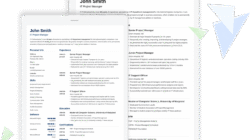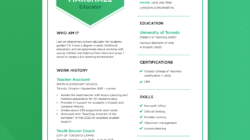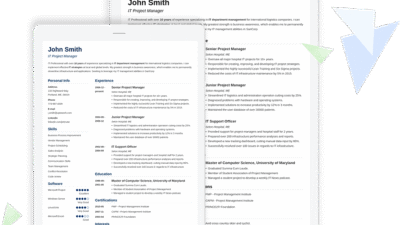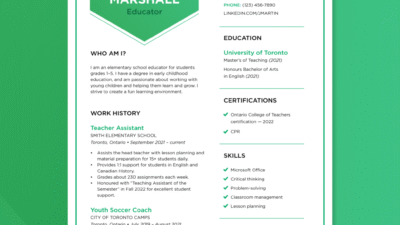Review remote jobs UK presents an exciting landscape where flexibility meets professional growth, inviting individuals to explore the vast array of opportunities available across various sectors.
In today’s interconnected world, remote work has become increasingly popular, offering individuals the chance to build fulfilling careers from the comfort of their own homes. This exploration highlights not only the advantages of remote positions but also the unique challenges and considerations that come with them, empowering job seekers to make informed decisions in their career pursuits.

In the ever-evolving landscape of technology and innovation, the significance of effective communication remains paramount. Whether in the realm of business, education, or personal interactions, the ability to convey ideas clearly and persuasively is a skill that can lead to success in any field. This article delves into the various aspects of effective communication, the methods to enhance it, and its importance in today’s interconnected world.Effective communication is not merely about speaking or writing; it encompasses a wide range of elements, including body language, listening skills, and emotional intelligence.
Each of these components plays a vital role in ensuring that the intended message is not only transmitted but also understood by the recipient.Firstly, let us explore the art of listening, which is often regarded as one of the most critical aspects of communication. Active listening involves fully concentrating, understanding, responding, and remembering what the other person is saying. This skill is essential, as it shows respect for the speaker and fosters a sense of connection.
To enhance your listening abilities, consider the following strategies:
1. Maintain Eye Contact
This simple practice can significantly improve your focus and demonstrate that you are engaged in the conversation.
2. Avoid Interrupting
Allow the speaker to finish their thoughts before responding. This not only shows respect but also allows you to absorb the information more effectively.
3. Reflect and Clarify
After the speaker has finished, paraphrase what you have heard and ask clarifying questions if necessary. This ensures that you have understood the message accurately.
4. Provide Feedback
Use verbal affirmations such as “I see,” or “That makes sense,” to encourage the speaker and show that you are actively engaged.In addition to listening, nonverbal communication plays a crucial role in how messages are perceived. Body language, facial expressions, gestures, and posture can all convey meaning beyond words. For example, crossed arms may signal defensiveness, while an open stance can indicate receptiveness.
To improve your nonverbal communication, consider the following tips:
1. Be Conscious of Your Body Language
Pay attention to how your body language may be interpreted by others and adjust accordingly.
2. Match Your Tone to Your Message
Ensure that your tone of voice aligns with the content of your message. A cheerful message delivered with a flat tone can create confusion.
3. Use Appropriate Gestures
Hand movements can help emphasize points, but be cautious not to overdo it, as excessive gestures may distract from your message.
4. Observe Others

Take note of the body language of those around you to gain insights into their feelings and reactions.Emotional intelligence is another vital component of effective communication. It involves recognizing and managing one’s own emotions as well as understanding the emotions of others. High emotional intelligence can lead to better collaboration, conflict resolution, and overall relationship building. To enhance your emotional intelligence, consider the following practices:
1. Self-Reflection
Regularly take time to reflect on your emotions and how they influence your behavior. This can help you gain better control over your reactions.
2. Empathy
Strive to understand the emotions of others by putting yourself in their shoes. This practice can deepen your connections and improve your communication.
3. Manage Stress
Developing techniques to manage stress can lead to clearer thinking and better interactions, especially in challenging situations.
4. Seek Feedback

Ask trusted friends or colleagues for feedback on your emotional responses in various situations. This can provide valuable insights into areas for improvement.In the context of business, effective communication is indispensable for fostering a positive work environment and ensuring organizational success. Clear communication can enhance teamwork, improve productivity, and minimize misunderstandings. Here are some practical strategies for promoting effective communication within a business setting:
1. Establish Open Lines of Communication
Encourage team members to share their thoughts and concerns without fear of judgment. This can be achieved by creating an open-door policy or regular check-ins.
2. Utilize Technology
Leverage communication tools and platforms that facilitate collaboration, such as instant messaging, video conferencing, and project management software.
3. Set Clear Expectations
Clearly Artikel roles, responsibilities, and deadlines to avoid confusion and ensure that everyone is on the same page.
4. Encourage Feedback
Create a culture where feedback is welcomed and valued. This can lead to continuous improvement and stronger team dynamics.Furthermore, effective communication is essential in the educational landscape. Educators who communicate effectively can inspire and engage their students, leading to enhanced learning outcomes. Here are some strategies for improving communication in the classroom:
1. Create an Inclusive Environment
Foster a classroom atmosphere where all students feel comfortable expressing their thoughts and asking questions.
2. Use Clear and Concise Language
Avoid jargon or overly complex language that may confuse students. Aim for clarity to ensure comprehension.
3. Encourage Student Participation
Use interactive teaching methods, such as group discussions and hands-on activities, to promote student engagement and collaboration.
4. Provide Constructive Feedback
Offer feedback that is specific, actionable, and supportive to help students improve their skills and understanding.In addition to business and education, effective communication is crucial in personal relationships. Clear communication can help resolve conflicts, strengthen connections, and foster intimacy among individuals. Here are some tips for improving communication in personal relationships:
1. Be Honest and Open
Share your thoughts and feelings authentically to build trust and understanding.
2. Practice Patience
Allow your partner or friend time to express themselves fully, and refrain from making assumptions about their feelings or intentions.
3. Address Conflicts Calmly
Approach conflicts with a calm and respectful demeanor. Focus on finding a solution rather than assigning blame.
4. Show Appreciation
Regularly express gratitude and appreciation for your loved ones. Positive reinforcement can strengthen bonds and enhance communication.In conclusion, effective communication is a multifaceted skill that requires practice and continuous improvement. By honing listening skills, mastering nonverbal communication, developing emotional intelligence, and employing practical strategies in various contexts, individuals can enhance their ability to connect with others. In a world where communication is increasingly vital, investing time and effort into developing these skills can lead to more meaningful relationships, successful collaborations, and a greater understanding of the diverse perspectives that shape our lives.
As we navigate the complexities of modern communication, let us remember the importance of clarity, empathy, and respect in all our interactions.
Essential FAQs
What types of remote jobs are most common in the UK?
The most common remote jobs in the UK include roles in IT, customer service, marketing, and project management.
How do I find legitimate remote jobs in the UK?
To find legitimate remote jobs, utilize reputable job boards, company websites, and networking platforms focused on remote work opportunities.
What skills are essential for remote work success?
Essential skills for remote work success include strong communication, time management, self-discipline, and technological proficiency.
Are remote jobs in the UK well-paid?

Remote jobs can be well-paid, often depending on the industry, position, and level of experience, with many organizations offering competitive salaries.
What are the benefits of working remotely in the UK?
Benefits of remote work include flexibility in hours, reduced commuting time, improved work-life balance, and often a wider range of job opportunities.











